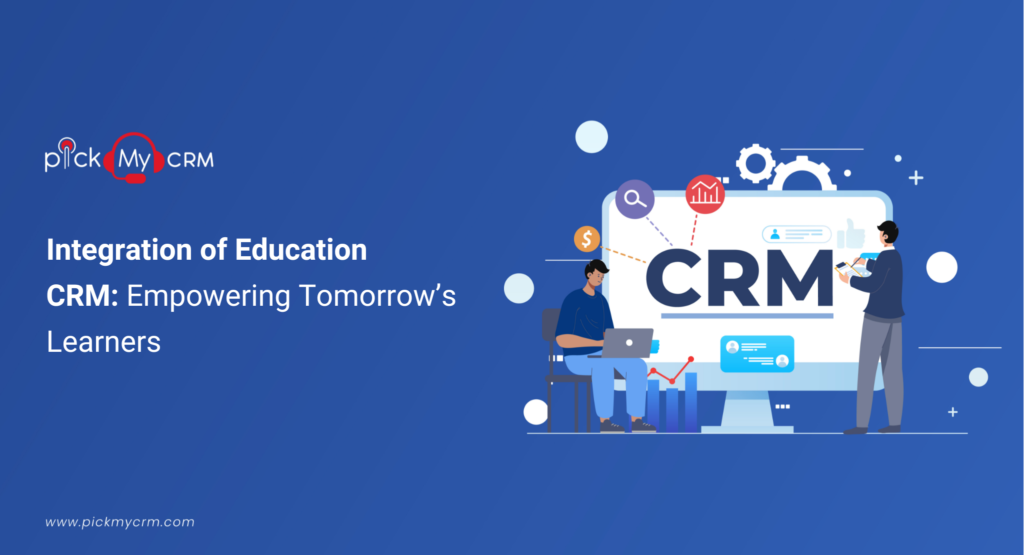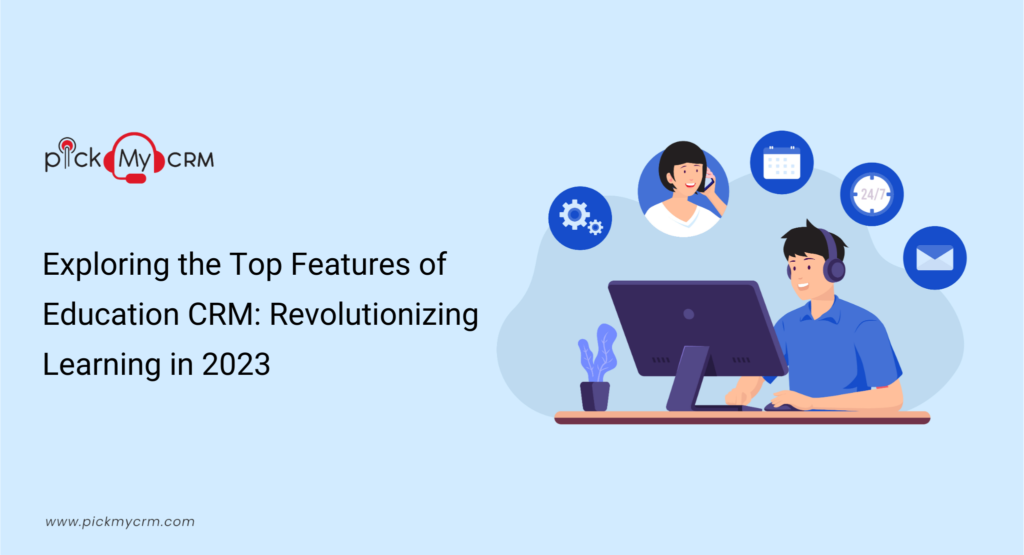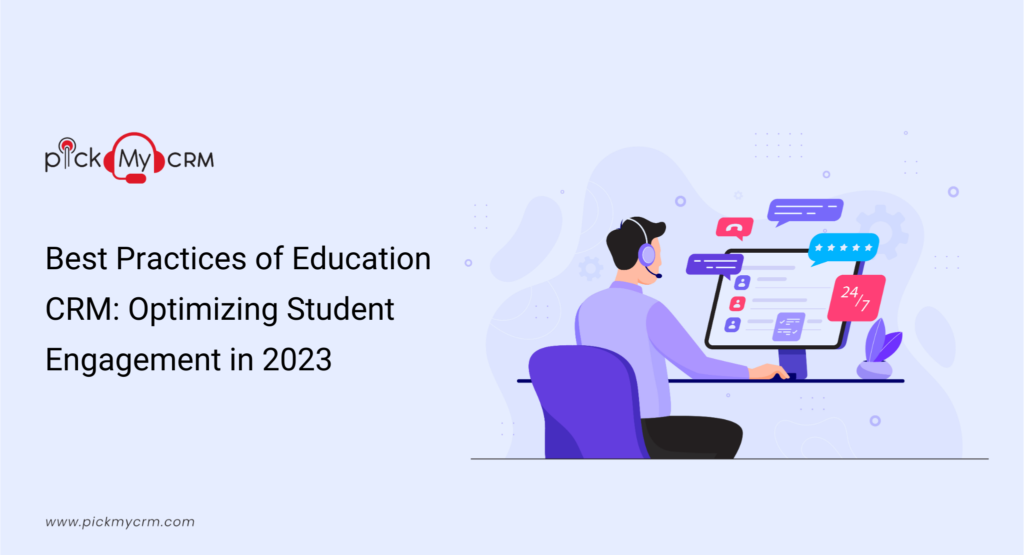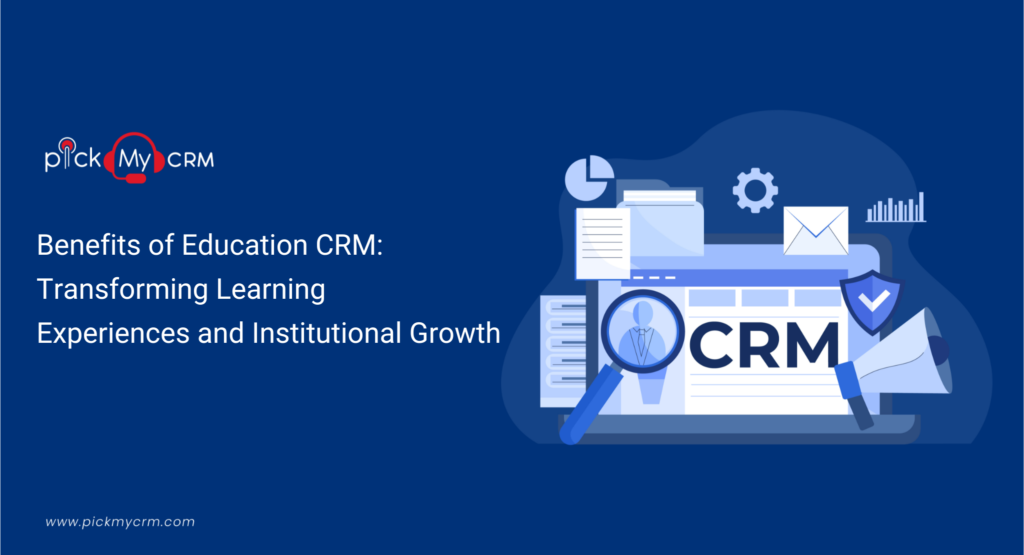Integration of Education CRM: Empowering Tomorrow’s Learners
Why Integrate an Education CRM?
Integrating an Education CRM (Customer Relationship Management) system offers numerous compelling advantages for educational institutions. The impetus behind this integration arises from the imperative to Modernize operations, Elevate communication, and Offer an exceptional educational experience. Fundamental motivations encompass,- Improved Efficiency: Education CRM automates tasks, reducing administrative burdens and optimizing resource allocation.
- Enhanced Communication: It facilitates seamless communication among stakeholders, including students, parents, faculty, and staff.
- Data-Driven Decisions: CRM provides valuable insights for informed, data-driven decision-making, improving institutional effectiveness.
- Personalized Experiences: Education CRM tailors the educational journey for each student, fostering engagement and satisfaction.
- Stronger Partnerships: It builds robust relationships with parents, students, and staff by enabling better communication and collaboration.
How Does Education CRM Integration Work?
Education Customer Relationship Management (CRM) integration is a strategic process that seamlessly merges CRM software with an educational institution's existing systems and processes. This integration aims to create a unified ecosystem that streamlines operations, enhances communication, and fosters better relationships among students, parents, faculty, and staff. Here's a comprehensive look at how Education CRM integration works,Selecting the Right CRM Solution
The integration journey begins with the selection of an appropriate Education CRM solution. Selecting the right CRM system is pivotal, as it must align seamlessly with the institution's unique requirements and objectives. During this phase, it's essential to Scrupulously assess factors including scalability, customization adaptability, integration potential, and user-friendliness.Selecting the Right CRM Solution
The integration journey begins with the selection of an appropriate Education CRM solution. Selecting the right CRM system is pivotal, as it must align seamlessly with the institution's unique requirements and objectives. During this phase, it's essential to Scrupulously assess factors including scalability, customization adaptability, integration potential, and user-friendliness.Customization to Institutional Needs
Upon selecting the CRM system, customization becomes imperative to tailor it to meet the institution's distinct needs. This customization involves configuring data fields, designing workflows, and tailoring reporting mechanisms to align with specific processes and objectives. The objective is to ensure the seamless integration of the CRM system into the institution's workflow.Integration with Existing Systems
At the heart of Education CRM integration lies the connection between the CRM system and the existing educational systems and databases. It commonly entails integration with,- Learning Management Systems (LMS): Integration with the LMS ensures that data related to courses, assignments, and student performance flows smoothly between the CRM and the LMS.
- Student Information Systems (SIS): Integrating the SIS provides a comprehensive student profile by incorporating student records, enrollment data, and academic progress information.
- Financial Software: Integration with Financial systems allows for efficient management of tuition payments, financial aid, and other financial transactions.
- Communication Tools: Integrating email, Messaging platforms, and Notification systems facilitates efficient communication among all stakeholders, promoting improved engagement.
Data Migration
Institutions often have a wealth of historical data stored in various formats. As part of the integration process, this data must undergo migration into the CRM system. This process involves transferring student records, contact information, academic history, and other relevant data into the CRM's centralized database.User Training
For successful CRM integration, staff and stakeholders require proper training. Users Need to understand how to navigate the CRM system, input and retrieve data, and leverage its features effectively. Training sessions ensure that everyone is proficient in using the CRM to its full potential.Ongoing Support and Optimization
Once the CRM is up and running, it's essential to provide Ongoing Support for users. It includes addressing technical issues, updating the system to accommodate evolving needs, and optimizing processes for better efficiency.Data Security and Compliance
Protecting sensitive student and institutional data is paramount. Education CRM integration should include robust data security measures to safeguard information and ensure compliance with relevant data protection regulations.Evaluation and Feedback
Regularly evaluate the CRM's performance against the institution's objectives. Gather input from users to pinpoint areas for potential enhancements and then proceed with the necessary adjustments to optimize the efficiency of the CRM system.When Should You Consider Education CRM Integration?
Incorporating an Education CRM system is a strategic move that educational institutions should contemplate when aiming to achieve various objectives. Here's when you should consider CRM integration,- Modernizing and digitizing operational processes is a priority.
- Improving communication and engagement between stakeholders is essential.
- When there is a requirement for data-driven insights to inform strategic decision-making.
- Personalizing the educational experience for students is a goal.
- Streamlining administrative tasks and support services is crucial.




